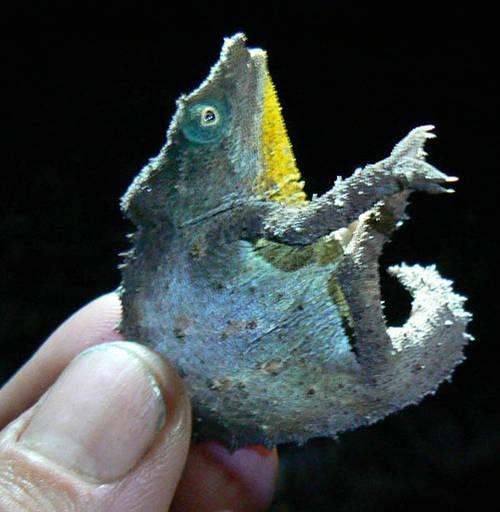
© Julian Bayliss/KewScientific surveying Mount Mabu -- Mozambique - found a wealth of wildlife including Pygmy Chamelons.
Space may be the final frontier, but scientists who recently discovered a hidden forest in Mozambique show the uncharted can still be under our noses. BirdLife were part of a team of scientists who used Google Earth to identify a remote patch of pristine forest. An expedition to the site discovered new species of butterfly and snake, along with seven Globally Threatened birds.
The team were browsing Google Earth - freely available software providing global satellite photography - to search for potential wildlife hotspots. A nearby road provided the first glimpses of a wooded mountain topped by bare rock. However, only by using Google Earth could the scientists observe the extent of woodland on the other side of the peak. This was later discovered to be the locally known, but unmapped, Mount Mabu. Scientific collections and literature also failed to shed light on the area.
